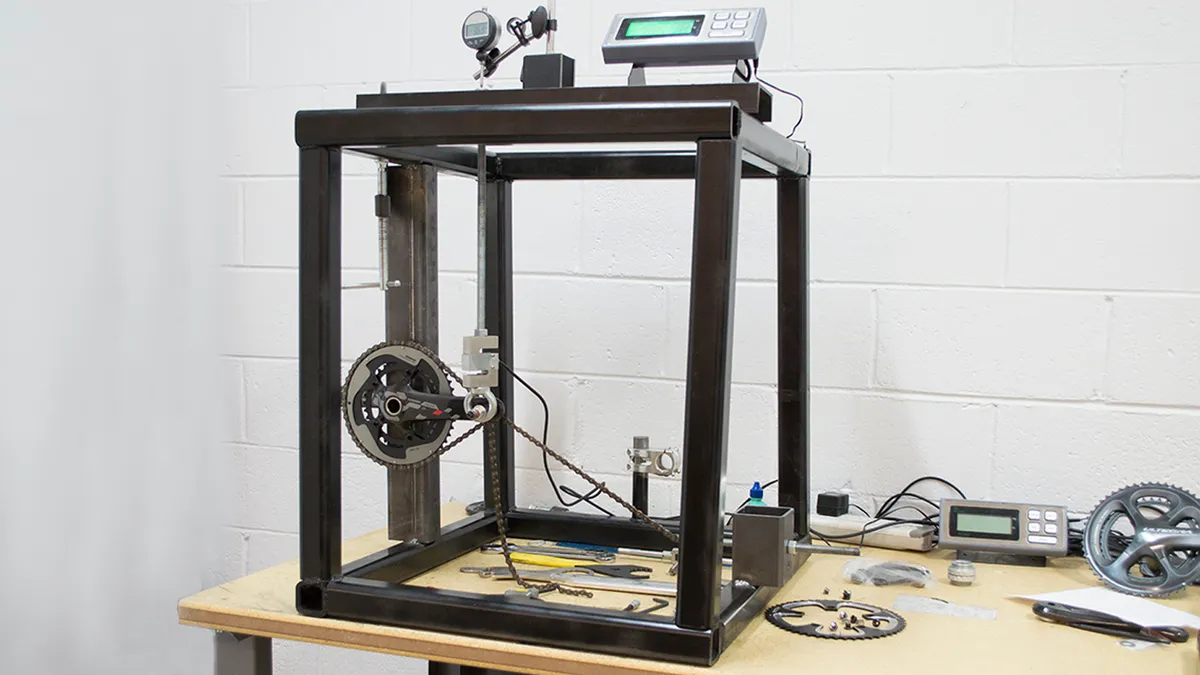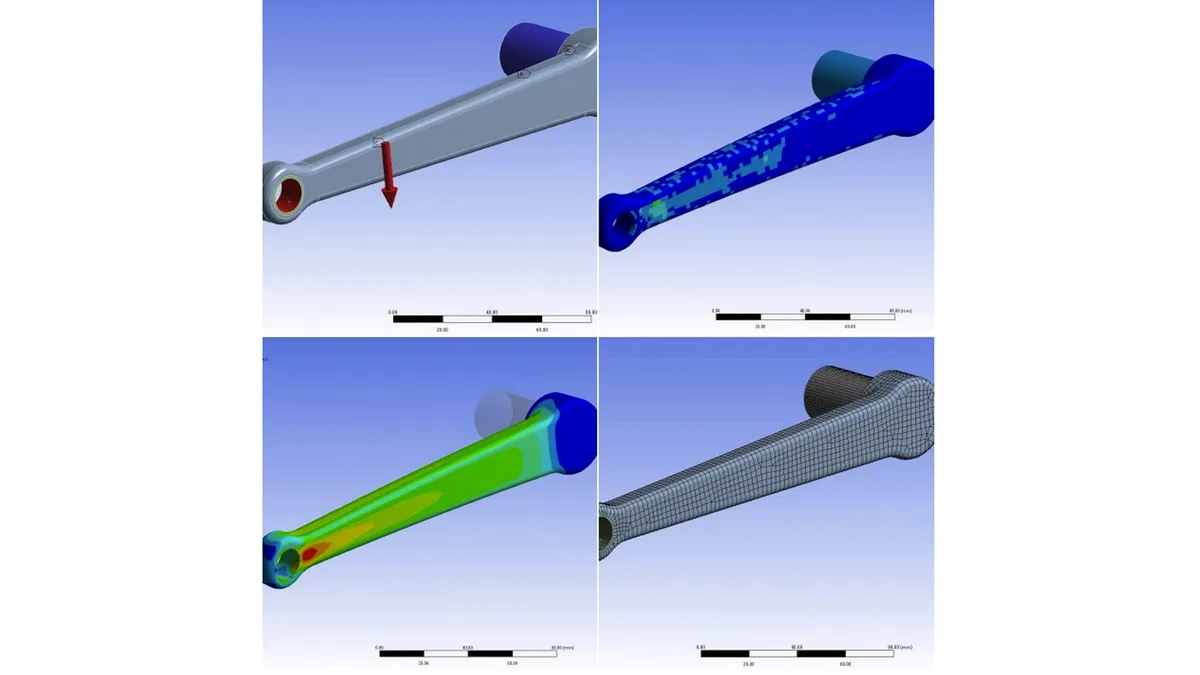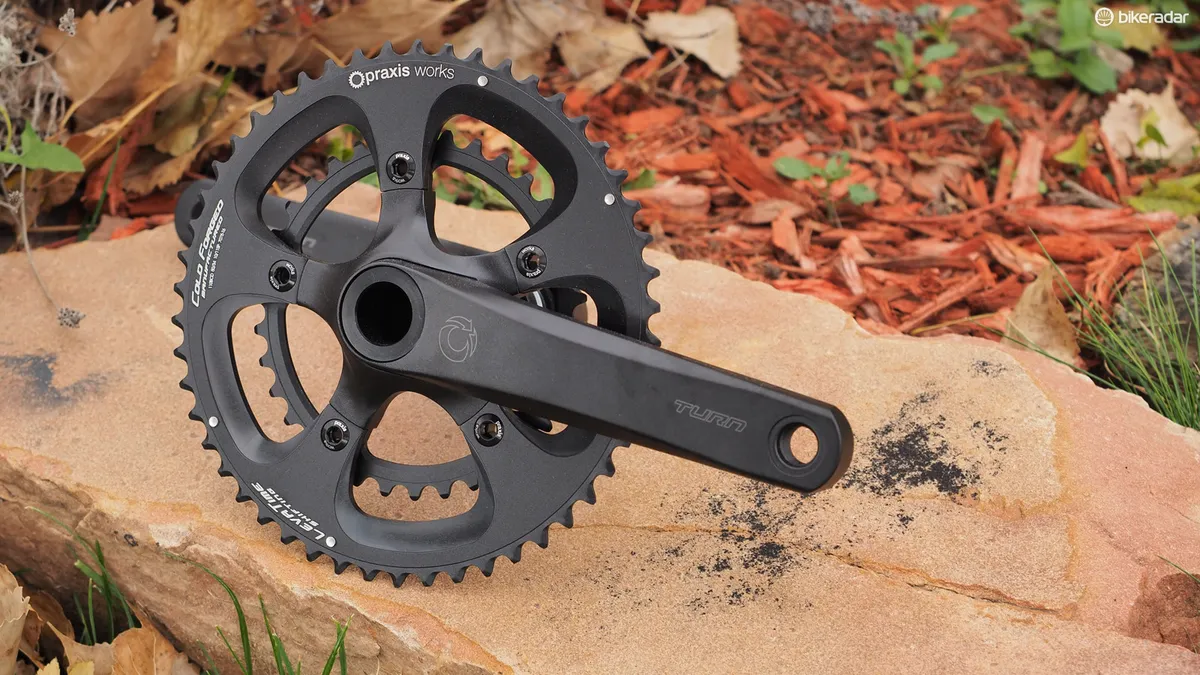Arizona-based über-retailer Fairwheel Bikes just completed its latest round of in-house crankset stiffness testing and shared some of the findings. This edition covered a dozen recent models from seven manufacturers: Shimano, SRAM, Campagnolo, Rotor, Turn (Praxis), Lightning and THM-Carbones. Fairwheel also calculated the power losses due to crankset flex, too – and some of the results may surprise you.
Although far from a comprehensive study given the limited sample size, Fairwheel's testing does reveal some interesting takeaways. For one, test results add further credence to the idea that size matters – as in, much of the crankset flex that is often recorded is due to spindle torsion, not simple bending. Whereas several cranksets equipped with standard 24mm-diameter spindles recorded more than 50 percent greater arm deflection on the non-driveside than the driveside, models that instead used oversized 30mm spindles generally kept the difference closer to 15-35 percent.
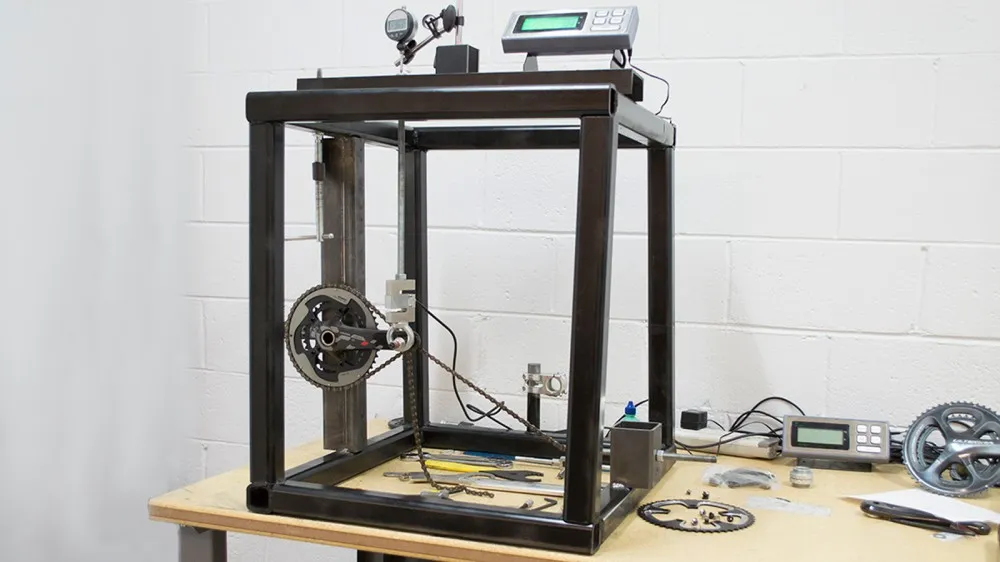
What happens when you subject a bunch of cranks to objective stiffness testing? Fairwheel Bikes set to find out
And speaking of spindle size, Fairwheel's tests also help put to rest arguments that old square taper cranksets perform just as well as modern outboard-bearing systems. According to the company's testing, a 2006 Campagnolo Record crankset not only recorded 28 to 44 percent more total deflection (driveside vs. non-driveside) than a current model, it's substantially heavier for a roughly 2-to-1 difference in stiffness-to-weight ratio.
Some of the model-specific results are intriguing as well. For example, whereas the Shimano Dura-Ace crankset was once the gold standard in terms of stiffness, it falls only mid-pack in these results in terms of average deflection and stiffness-to-weight ratio – and the substantially cheaper Ultegra model is expectedly heavier (by about 75g) but it's also slightly stiffer, too.
Likewise, Campagnolo's latest Super Record crankset boasts a radically new design that likely yields improvements in chainring stiffness and shift quality (something Fairwheel didn't test), but it's a statistical dead heat relative to the previous model in terms of weight and stiffness.
SRAM's flagship Red 22 model, meanwhile, did quite well overall with the best overall deflection, weight, and stiffness-to-weight numbers of the big three. However, the only slightly less expensive Force 22 model is not only more than 100g heavier but slightly more flexible, too.
Perhaps the biggest surprise is the new Zayante road crank from new company Turn – the sister company of popular chainring manufacturer Praxis. While the complete setup is relatively heavy at about 830g on Fairwheel's scales given the all-aluminum construction and oversized dimensions, it also recorded the best averaged deflection values in the test, beating even the second-placed THM-Carbones Clavicula Classic crankset – an all-carbon exotic model that costs more than four times as much.
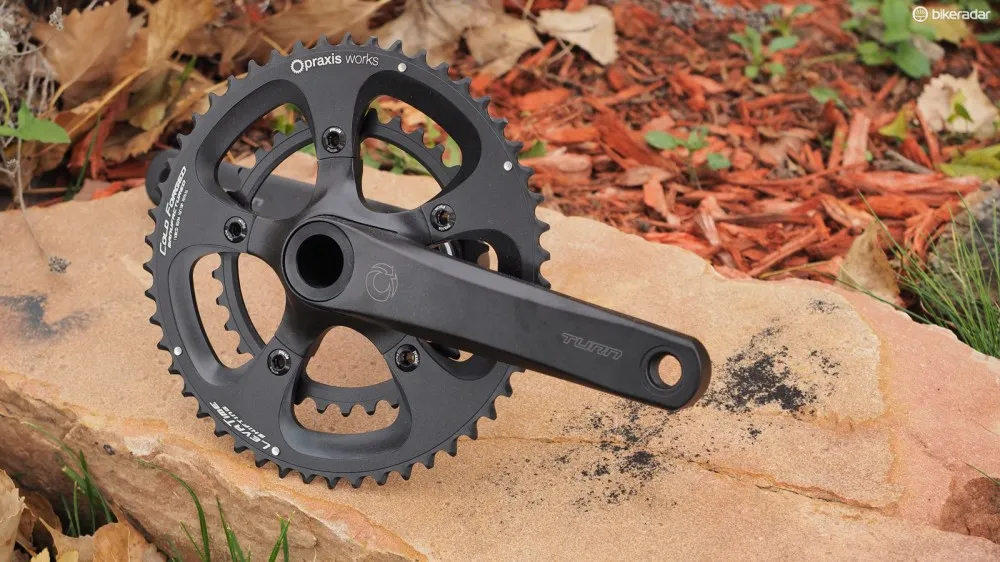
Although reasonably priced, the new Turn Zayante to be the winner in terms of absolute stiffness values
Less you get too immersed in the numbers, Fairwheel provided some context to all of this data by calculating how much crank deflection might actually cost you in terms of power losses – and according to the company's number crunchers, it doesn't add up to much at all, at least if the assumptions made for the numerical model reflect reality reasonably well.
"That’s not to say that crank stiffness is irrelevant; there is a measurable difference," says Fairwheel's report. "It also provides all the psychological and 'feel' benefits [and] a stiff crank also incrementally improves efficiency by keeping bearings aligned, keeping the pedals more directly beneath your feet, etc."

Fairwheel suggests that crank stiffness doesn't matter much in terms of power efficiency - at least not given the relatively small measured differences in rigidity
Fairwheel has more testing planned in the future, too.
"We started doing testing mostly out of curiosity for ourselves," said Fairwheel manager Jason Woznick. "We just wanted to try and do our impartial testing to see how things shake out with no real goal other than we're bike geeks that want to know."
"We've recently done road brake, stem, and road bar testing. We've finished testing on mountain bike bars but have not yet published it. We'll be doing mountain bike cranks shortly and have already started design on a wheel fixture to do some different wheel tests. Beyond that we've talked about ideas for testing forks and frames."
Want more? Head over to Fairwheel Bikes for the full report and testing details.
